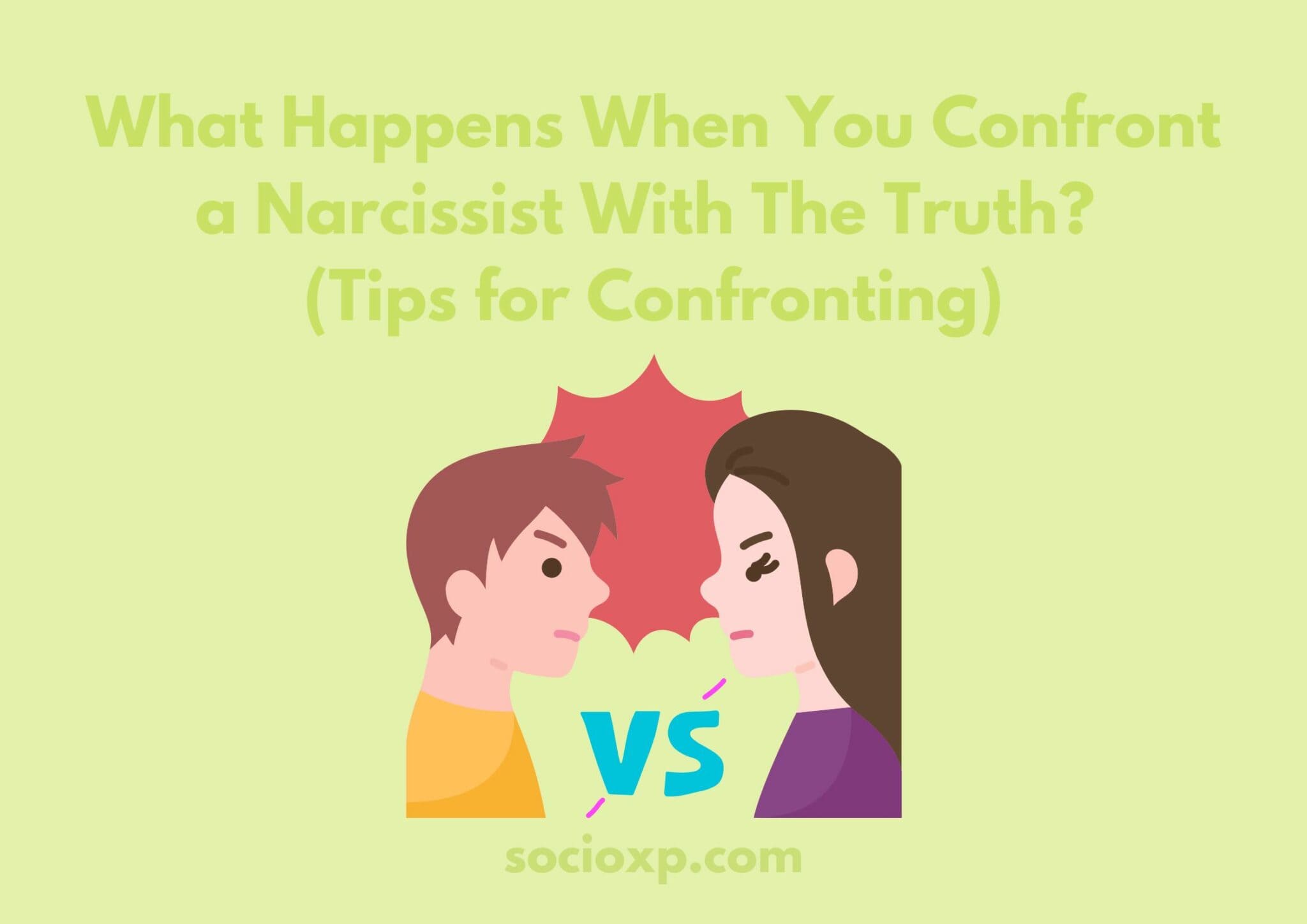Understanding Narcissistic Rage: Signs, Causes, Examples & Controlling Methods
When you have someone narcissistic in your life regardless of the relationship, the most annoying task is to bear with them and their anger issues. So it becomes crucial here understanding narcissistic rage and learn ways to deal with their unwanted rage and temper tantrums. Narcissists and their rage are two sides of the same coin. They get easily annoyed, enraged, and furious with simple inconveniences in their life. So let us get going further article and focus on Understanding Narcissistic Rage with signs, causes, examples, and Controlling Methods.
What is Narcissistic Rage? – Understanding Narcissistic Rage
Rage is an outburst of anger. It is a common outcome of emotions or an emotional response for someone with a narcissistic Personality Disorder. It is a reaction or response to a Narcissistic Injury.
What is Narcissistic Injury?
Narcissistic injury is a term that is used when a narcissist’s self-worth or self-esteem is hurt. It is an emotional injury. Narcissistic injury can be the cause of narcissistic rage. Narcissistic Injury also known as “narcissistic wound” is an occurrence or an outcome when a narcissist faces loss, criticism, a feeling of abandonment, or loneliness.
Sometimes a narcissist just shuts down their emotional side and just switches to an apathetic or emotionless individual who chooses violence, anger, and such negative emotions to let their internal conflict out. This internal conflict can happen when a narcissist is upset with something or hurt due to someone.

Thus when a narcissist gets hurt they might either go violent or outrageously furious(which is termed as narcissistic rage) or they would just go silent for days without uttering a single word. Thus narcissists may choose such outlets for letting their emotions out in the form of rage, ignorance, silent treatment, blocking, or even disappearing for days. Narcissistic rage is so volatile, that it may leave you shaken for days.
Narcissistic rage is a counter-reaction or a defense mechanism utilized by a narcissist to guard themselves and their grandiose image. They even use rage to establish their superiority, power, and self-worth, and thus safeguard their perfect spotless image. Narcissistic rage is like a shield that protects the narcissist from the arrows or spears of setbacks, shame, inefficiency, disappointment, vulnerabilities, and anything that can devalue their worth.
Rage is usually defined as an extremely violent and out-of-control anger burst. The intensity of hostility, wrath, outrage, and outburst of violent words and actions is higher with rage as compared to anger. Rage is one of their most used emotion and when a narcissist is hurt by someone else, they would resort to rage and project it on the person who is closest to them. Sometimes a narcissist just shuts down their mellow side full of sweet emotions and chooses negative emotions like rage, ignorance, physical abuse, emotional breakdown, and even disappearance for days.
A narcissist’s thought processes and reflexes are a little impossible to predict precisely. They act impulsively out of rage when proven wrong or pointed fingers at. Narcissists are passive-aggressive beings, who fail to connect emotionally with their loved ones hence they use various methods to feel powerful. Their actions always differ from what they have to say or believe.

The first and foremost reaction of a narcissist to any inconvenience caused by others is anger, rage, or wrath. If you have been with a narcissist you might be aware of their anger issues. They feel more agitated than usual when you ask them to reflect upon something. They would be harsh with their words. They would try to hurt you emotionally.
They might even call you names or use abusive vocabulary when you expose their shady side or do something that seems unpleasing or resentful to them. But do not get disheartened or terrified by their rage, as it is their go-to tactic to outburst their rage on you. And thus when they are displeased by something you have done or something that can trigger their outrageous side, be ready to face their fury.
As stated in an article about narcissistic rage,
“Narcissistic rage is a term that was first coined by author Heinz Kohut in 1972 to refer to the tendency for people with narcissistic personality disorder (NPD) to fly into a rage with what might seem like the slightest provocation or no obvious provocation at all.
Are Rage and Anger the same?
Rage is intensified anger. Yes! They are similar. It is just that anger is a common emotion that can be experienced and is experienced by all when something displeasing, irritating or annoying incident occurs. Every once in a while everybody falls victim to someone’s anger outburst or someone falls victim to your anger outbursts.

The only difference is that narcissists channel their anger more intensively and in a magnified version that can severely hurt someone’s feelings and that outburst may be violent too in some cases. Rage is usually defined as an extremely violent and out-of-control anger burst.
Not all people have rage outbursts because they are narcissists, but rage can be caused due to various reasons like mental instability, depression, too much consumption of alcohol or drugs, and much more.
Signs of Narcissistic Rage
If you are wondering how would you identify narcissistic rage when a person is exhibiting rage? What are some signs through which you would be able to distinguish narcissistic rage? Here below are some Signs of Narcissistic Rage.
One important point to note here is that narcissistic rage feels like it is intentional or purposeful, but in most cases, it is a reaction to actions. Narcissistic rage is susceptible to the occurrences and prevalences.
Narcissistic rage is not to be perceived as the usual form of anger, it is different from that. Though it includes all qualities of anger, one cannot measure the dimension, intensity, and responses in this case. It can be either excessively outrageous or outwardly, or it can be extremely inward resulting in a silent treatment.
There is no fixed proportion to which you may face a narcissist’s rage and in what form! You may always be taken by surprise at the time you face it, it is that startling. The person facing narcissistic rage may always be struggling as to what to expect, as it keeps on changing as per the circumstances and occurrences.
Narcissists may display inward and outward signs according to their personality, degree of narcissism, and nature of the occurrence. Thus narcissistic rage can be either active or passive and may show a few inwardly and outwardly signs. Those designs are mentioned below,
Outward Signs of Narcissistic Rage
(These signs are commonly observed under overt narcissism, but may also relate to covert narcissism in many cases.)
- Narcissists start acting like they deserve all the attention in the world, thus demanding it. They would be having a sense of entitlement and would behave as if they deserve every ounce of attention and when you fail to do so they would be super pissed and you will have to face their narcissistic rage.
- Narcissists may yell, scream, be violent, or use such harsh words that may hurt you badly, this is a sign of their narcissistic rage.
- Throwing temper tantrums every now and then for small and insignificant matters.
- Using physical and verbal aggression to answer simple conversations.
- Losing cool in everyday conversations for simple things.
- Inflicting pain on others through actions, words, and presence, and that too intentionally.

Inward Signs of Narcissistic Rage
(These signs are commonly observed under covert narcissism, but may also relate to overt narcissism in many cases.)
- Silent treatment and ignorance are also a part of their rage when they are wounded deeper and even words cannot cope with their anger. Then they choose to teach you a lesson by temporarily blocking you or giving you the silent treatment on purpose.
- Their eyes, facial expressions, and body language do not match their words.
- They resort to passive aggression.
- Avoiding and ignoring someone purposefully.
- Neglecting duties and running away from responsibilities intentionally.
- Excessively using sarcasm to cut down conversations.
- Becoming bitter with words and hostile with behavior.
- Using an excessively insulting tone for conversations.
- Avoiding to accept the reality of the situation.
- Being away and aloof from people. Choosing isolation over socializing. In most cases, narcissists are people pleasers but when they are mad, they would totally shut down and isolate themselves from the world.

Cause of Narcissistic Rage
To be precise, the causes of narcissistic rage highly depend on the individual’s personality which can be differentiated through genetics, methods of parenting and ways of upbringing, life circumstances, type of narcissism, and the degree of narcissism.
Narcissists use their narcissistic rage as a defense mechanism that occurs naturally, but we feel they pre-plan the scenarios but it is not so. Narcissists tend to shield their fake facades with their rage when someone tries to penetrate them with truth, confessions, or anything that harms it.
When someone tries to challenge a narcissist and their confidence, they may use narcissistic rage to defend themselves, by all means, to avoid exposing their weaker, inadequate selves. They may project the challenge on you and instead provoke you when you try to challenge a narcissist.
When someone tries to reveal their fake personality or confront them about it, this gives rise to narcissistic rage.
A Narcissist is an individual who is excessively obsessed to have control over all situations in their life. When a Narcissist cannot control you, they would be behaving more arrogantly and you might notice many changes in their behavior. They become the most difficult to deal with when they lose control or they may become completely different and would do such stuff to draw attention. One of the things that they do for gaining attention is by building unnecessary dramatic situations and pouring their rage out of blame on you.
To know the causes of narcissistic rage, one must know the signs of narcissism and narcissistic traits.
Symptoms or Signs of Narcissistic Personality Disorder
These traits may vary for some individuals, thus here mentioned signs can be generalized for majorly all narcissists in all.
Manipulation – Manipulation is a narcissist’s go-to tactic while dealing with others in order to get what they need.
Grandiosity – Narcissists have a boosted sense of self-importance and thus showing off their achievements, talents, plus points, looks and much more becomes their regular ritual.
Lack of Accountability – Narcissists may never take responsibility for their actions even though their actions may cause distress and harm to others. They use the technique called blameshifting to distract everyone and thus ditch their wrongdoings.
Entitlement – Narcissists believe that they are made for special treatment and deserve all the privileges as they are better than others.
Envy – Narcissists easily get jealous and envious of other people, their looks, their achievements, and much more.
Exploitative tendencies – Narcissists can exploit others without giving it a second thought and without even trying to know the consequences of their actions.
Arrogance – Narcissists are filled with arrogance and their attitude towards others says it all.
Behavioral Traits of Narcissists
Some behavioral traits of narcissists are as follows,
- They use manipulation in all situations where they feel they are losing control
- They always see the negatives first
- They are selfish and inconsiderate
- Narcissists lack sensitivity and empathy.
- Have uncommon expectations and unusual fantasies
- You are always the wrongdoer and not them in their eyes
- They are almost incapable of praising others or giving enough credit to others
- They act over dramatically over trivial matters
- There is no winning against them in an argument
- They are highly competitive even with someone who is incomparable
- They cheat innumerable
- Have unhealthy relationships.
- Have regular mood swings.
- They use past grudges as their trump card
- They never provide straight answers
Examples of Narcissistic Rage
Knowing some examples might make it really clear for the readers to understand narcissistic rage in detail,
- A narcissistic person may always circle back to the conversation towards them and their problems and when you try to cut them in between, you have to face their unwanted temper tantrum.
- When you start taking your own decisions without even discussing it with your narcissistic partner, then you might face their rage.
- When you catch a narcissist cheating, they would be bursting with anger. They would be so pissed at you transferring the blame at you that you are unlovable rather than confronting their mistake. They would just be pissed when they are not able to justify their mistake and would just be worried about obtaining their supply. When something triggers a narcissist, in this case, your confrontation about them cheating and lying, their first reaction is aggression and hostility. Confronting them may trigger a narcissist’s ill-intended side and thus they may act viciously or harshly. They would be all hyped up and agitated.
- When you criticize the narcissist, you might face their rage.
- As you reject them, then they might definitely choose to lash out at you. Narcissists cannot bear when they lose control of the situation. A narcissist’s thought processes and reflexes are a little impossible to predict precisely. They act impulsively out of rage when proven wrong, criticized, rejected, ignored, or denied. Narcissists are passive-aggressive beings, who fail to connect emotionally with their loved ones hence they use various methods to feel powerful. Their actions always differ from what they have to say or believe.
How to control narcissistic rage?
The worst-case scenario regarding narcissistic rage is it drives people away from them. For narcissists, it may seem realistic and easy in the short term, but in the long term, it may cause abandonment and drifts from loved ones.
The most important step is to understand how narcissistic rage is not normal. Then comes the task of recognizing the usual pattern of thoughts that causes rage, what are the triggers and harmful approaches.
Understanding the “WHY” and knowing the “TRIGGERS“, and knowing the reason behind why you function in certain ways, or what is the root cause of your narcissistic rage, or why are you behaving the way you do, is the first and foremost step towards controlling your rage. Knowing the reason, understanding how it has affected your life, and trying to stop practicing those actions and staying from such situations are a few baby steps that you need to take in order to control the narcissistic rage and be able to function differently and better than you currently are.
You might have become an emotionless robot because you prefer hiding or depressing your emotions in order to keep up the image of being the perfect human. You might be avoiding all the sad emotions with the help of excuses just to keep yourself from feeling the pain. But when you start feeling all the emotions like grief, happiness, sorrow, sadness, empathy, sympathy, and every other emotion in depth, then this is the sign you are healing and becoming the better version of yourself. So seek help without hesitation if you need professional help like therapies or some help from support groups.
Important Takeaway
It is important to understand how narcissistic rage is harmful to both the narcissist and the person facing their rage. Find triggers, causes, and signs of why you get agitated and become furious and also work towards healing and aiding from it.
So if you are a narcissist facing the problem of excessive rage, find solutions by recognizing the triggers, causes, signs, and symptoms. And if you are facing narcissistic rage through your narcissistic partner, narcissistic parents, narcissistic children or any narcissist around you then understand that it is not normal and it is not your fault. Try and develop some coping skills and understand more about narcissism.
Always remember, that you are not alone in this so reach out for help to others like therapists, family, friends, or anyone trustworthy and helpful and disclose what you are facing with an open mind and surely you will get many solutions for your problem.
- How To Make A Narcissist Discard You And Leave You Alone? - March 21, 2024
- Narcissistic Supply: 9 Signs You May Be Someone’s Narcissistic Supply - March 11, 2024
- Narcissistic Abuse And Anxiety – 11 Symptoms of Narcissistic abuse-induced anxiety - March 9, 2024


